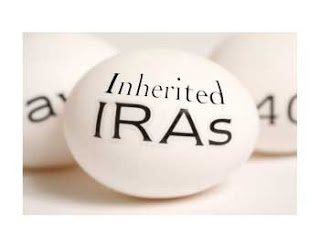Clark v. Rameker: Supreme Court Rules An Inherited IRA
Is Not Exempt From The Bankruptcy Estate
Once again it has been shown that it never pays to ignore a problem. Whether dealing with tax issues, credit card debt or unpaid judgments failing to be proactive can have dire consequences. A June 12, 2014 Supreme Court decision (Clark v. Rameker, (U.S. S.Ct. June 12, 2014) No. 13-299), shows that failing to deal with financial problems immediately can lead to unintended assets being used to satisfy the claims of creditors.
In Clark v. Rameker the Supreme Court settled a split between the 5th and 7th Circuits regarding the ability to protect inherited IRAs from creditors in federal bankruptcy proceedings. Unfortunately for consumers, the Supreme Court ruled that inherited IRAs are not “retirement funds” and, therefore, cannot be exempted from the bankruptcy estate.
In its unanimous decision the Court distinguished inherited IRAs from traditional or Roth IRAs on three grounds. First, the holder of an inherited IRA may never invest additional money in the account. Second, holders of inherited IRAs are required to withdraw money from the inherited IRA, regardless of the age of the holder. Third, the holder may withdraw the entire balance at any time without penalty. The Court reasoned that since inherited IRAs do not share the common characteristics of traditional or Roth IRAs, inherited IRAs are not “retirement funds” within the scope of the bankruptcy code.
One important note, this decision does not change the ability of a spouse who inherits an IRA and rolls the inherited IRA into her own retirement account to claim the inherited IRA as exempt. The distinction being that the spouse’s inherited IRA has all the same qualities of a traditional or Roth IRA, whereas, a non-spouse beneficiary does not have the option to roll-over the inherited IRA.
The Court’s decision in Clark v. Rameker stresses the importance of resolving any financial decisions immediately. Rather than ignoring tax debts or credit card debts, it is imperative to meet these challenges head on to ensure any problems are resolved before one inherits significant assets. Further, waiting until the death of a relative but before the inheritance is received is waiting too long. Pursuant to 11 U.S.C. §541 property of the bankruptcy estate includes any entitlement to an inheritance from someone who has already passed away or passes away within 180 days after filing the petition. So the triggering date is not the expected date of the inheritance but the passing of the individual. As can be seen from 11 U.S.C. §541, one is required to predict the future and know whether anyone will pass away within 180 days after filing the Bankruptcy petition. Obviously, no person can properly make this prediction, but the takeaway is that it is always better to deal with financial problems sooner rather than later.
Determining whether to file bankruptcy or how to handle tax debts is a complex legal analysis. The attorneys at Calone & Harrel Law Group, LLP, offer extensive experience in tax collection issues, Chapter 7 bankruptcy and Chapter 13 bankruptcy and can provide exceptional representation throughout the difficult process. If you are considering filing bankruptcy you can contact Calone & Harrel Law Group, LLP to schedule a free thirty (30) minute consultation with our bankruptcy attorney to see if a bankruptcy filing would be appropriate in your given factual situation.




